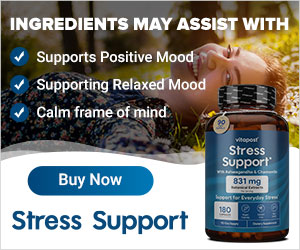Anxiety, if untreated, can become chronic, leading to more physical, mental and emotional health complications. Among the categories of medications that effectively help tackle anxiety is SSRI (Selective serotonin reuptake inhibitor) or sertraline. Sertraline works by restoring the balance of the serotonin chemical in the brain. Any imbalance in the brain’s serotonin levels can have a detrimental effect on sleep, memory, sex drive, mood and even social behavior. Zoloft is a common sertraline drug used to alleviate anxiety through restoration of the serotonin balance.
Fed up taking drugs for anxiety? Then check out this PROVEN drug-free method!
Zoloft to Alleviate Anxiety Symptoms
Zoloft can help in alleviating different kinds of anxiety problems, ranging from depression to panic disorder or attacks, phobias, PTSD (post traumatic stress disorder) and OCD (obsessive compulsive disorder). It attacks some of the common anxiety symptoms such as loss of appetite, insomnia, mood disorder and lethargy. Not only does it improve sleep, energy levels, mood and appetite, it also helps in controlling panic attacks by keeping unwanted fears and thoughts at bay. Compulsive behavior resulting from OCD can also be tackled with the use of Zoloft, taken orally as per the dosage prescribed by your physician. The drug is available in both tablet and capsule form, with the latter usually taken after a meal.
Side Effects of Zoloft
The positive effects of Zoloft notwithstanding, its usage needs to be handled with care as it tends to cause many side effects, ranging from the mild to the severe. Loss of appetite, sleep trouble, drowsiness, stomach problems such as diarrhea, sweating, nausea, dizziness and dryness of the mouth are some of the patent side effects of the drug. The more serious side effects include reduced sex drive, muscle cramps, tremors, unexplained weight loss and increased risk to bruising and bleeding. In severe cases, the user may complain of dark vomit, vision problems including pain, redness or swelling of the eye, and black or deep red stool.
Though rare, Zoloft is also sometimes found to cause serotonin syndrome, resulting from an increase in the brain’s serotonin levels. Some medications — even OTC medications — taken simultaneously with Zoloft, can increase the possibility of serotonin syndrome. For example, dextromethorphan, which is used in some cough syrups, is one of these medications. Other possible side effects of using Zoloft include severe dizziness, nausea or vomiting, tics or twitching of muscles, loss of coordination, hallucination, fast heartbeat, fever and high levels of restlessness. Skin rashes, breathing problems, fainting spells, swelling or itching of the face, throat or tongue can also result from the use of the drug. Such problems can get magnified if Zoloft is used in conjunction with certain other drugs or products.
The side effects and their intensity vary from person to person, with some individuals not affected at all with the use of this medication. While the milder symptoms may simply require stopping the use of Zoloft, for the severe side effects you may need to consult a doctor and perhaps go for medical treatment.
Preventing Drug Interaction
Anti-platelet drugs including ibuprofen and clopidogrel, warfarin, pimozide and MAOIs tend to interact with Zoloft, triggering serious health complications, which can even be fatal. Drug interaction can also increase the risk of serotonin syndrome, like in the case of dextromethorphan. Consult your doctor if you plan to take alcohol, sleeping pills or antihistamines with Zoloft. Even certain cold and cough medicines, as well as aspirin, can cause problems if taken with this medication. Zoloft can also interfere with medical tests, leading to false results, so it’s best to inform your doctor or laboratory staff before going for any tests if you’re on Zoloft.
Precautions to be Followed
It’s important to be careful about when, how much and how often you take Zoloft as an anxiety relieving medication. The drug has many side effects, prompting doctors to generally start with a small dose and increase it gradually. Taking the medicine at the same time every day helps enhance the effect of Zoloft. You need to consult your doctor not just before starting with this medication but also for increasing or decreasing the dosage.
Don’t stop the medication without checking with your doctor even if you feel relieved of your anxiety symptoms. Like most anti-anxiety medications, this is also best phased out gradually, under the guidance of your doctor. Stopping it abruptly can worsen the condition in some cases, besides causing other side effects such as sleep problems, headache, lethargy and mood swings. Abrupt cessation of the medicine can also trigger an electric shock like sensation.
You also need to be careful about possible allergies with the use of Zoloft. Check out the ingredients on the label before using the drug and, if needed, also check with your doctor after apprising him of your medical history. Zoloft may cause problems if taken with thyroid, liver, vision or bleeding problems. Alcohol consumption and driving may not be safe to undertake while using Zoloft, so do consult your doctor on the same.
Pregnancy and breastfeeding are two conditions in which anti-anxiety medications, including Zoloft, should either be avoided or used sparingly under your doctor’s guidance. Elderly patients, especially those over 60 years, need to be particularly cautious about using the drug. Children under the age of 12 are also best kept away from Zoloft, as it can trigger extreme side effects in them.
Fed up taking drugs for anxiety? Then check out this PROVEN drug-free method!
Conclusion
Zoloft can be safely used to treat anxiety if taken with care, under the supervision of a doctor or pharmacist. You should take due care about your dosage, apart from possible interactions with other medicines, while taking Zoloft. Overdose can necessitate emergency treatment, so if you feel extremely dizzy or as if you’re going to faint, call medical emergency. A missed dose is not really a cause of worry; you can simply resume your schedule from where you’ve missed out. Doubling the dose to make up for a missed dosage is not a good option. And finally, every individual’s body responds differently to different drugs, so it’s possible that Zoloft won’t work for you, in which case you may need to find an effective alternative anti-anxiety treatment method.






